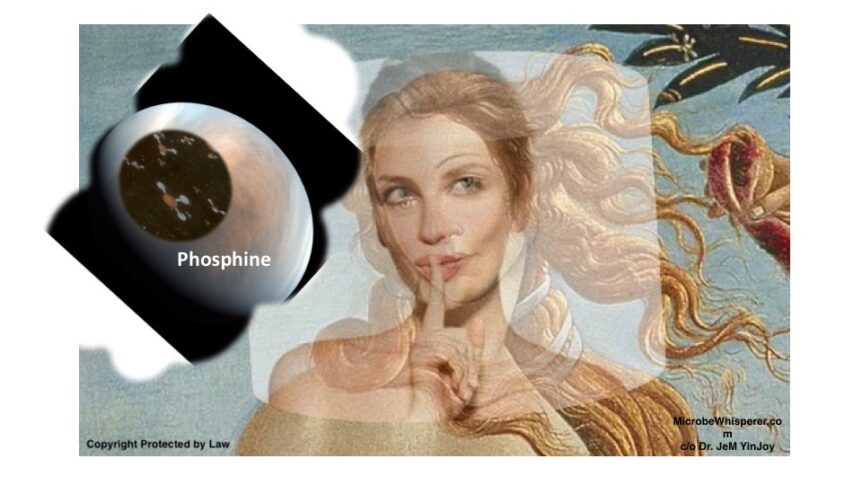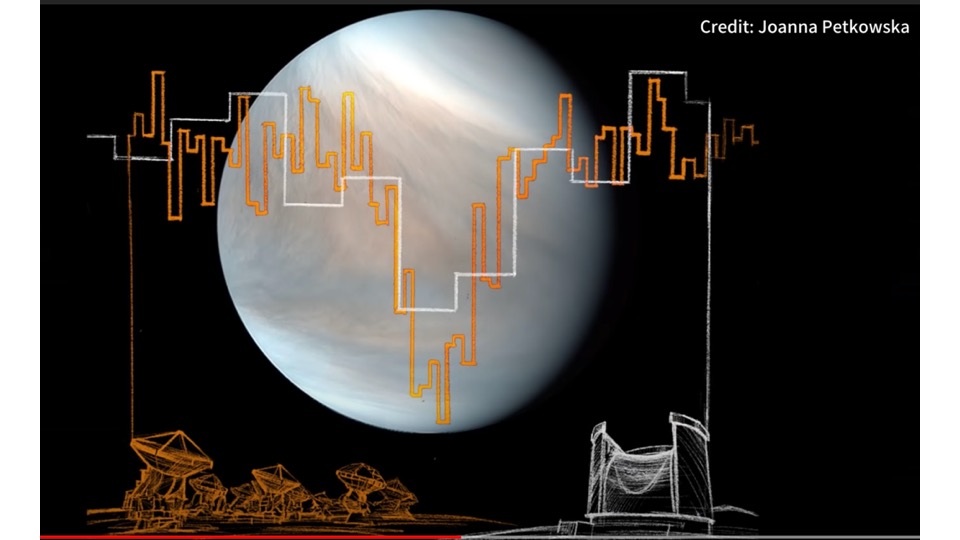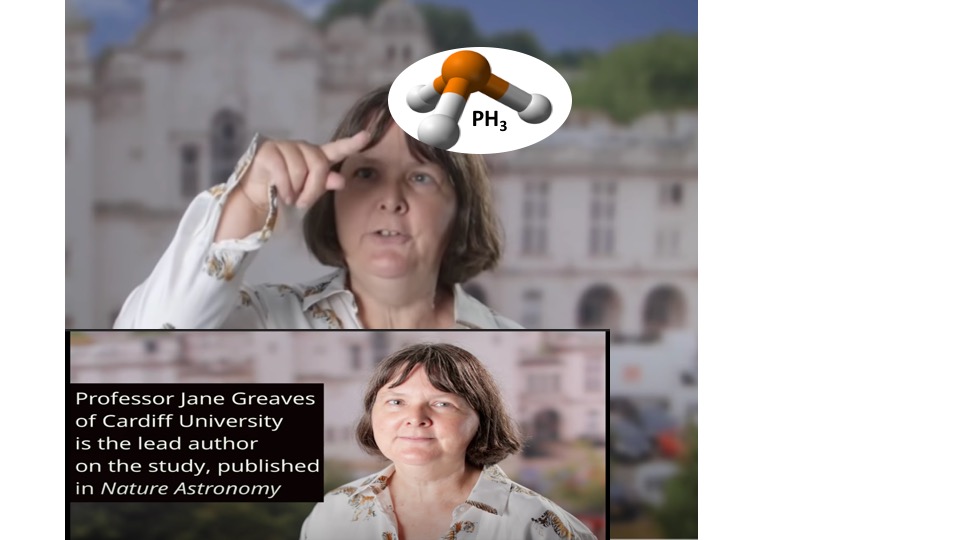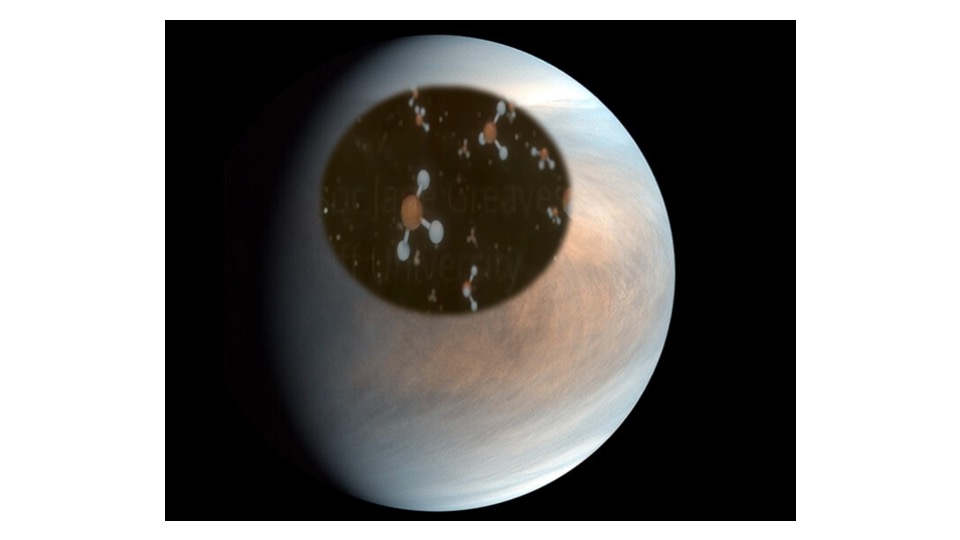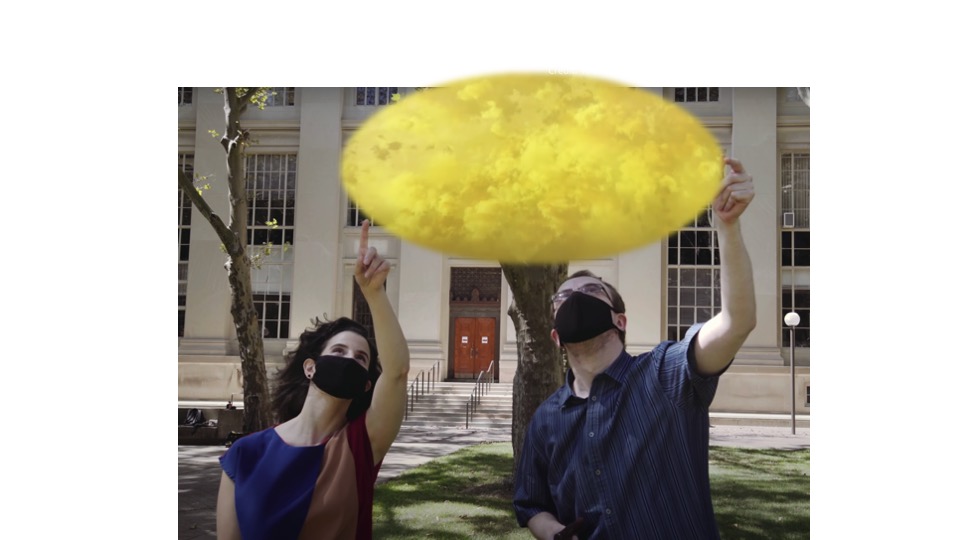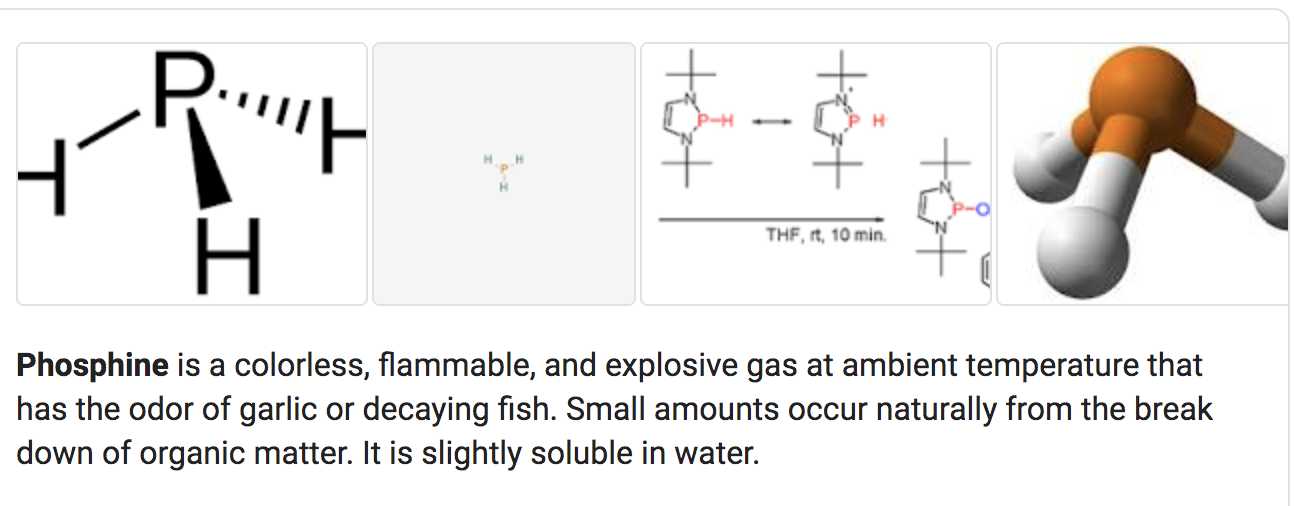
Venus has whiffs of microbial life, in the form of a smelly gas called phosphine.
This intriguing news was published today, in Nature Astronomy. The astronomers making this discovery, are led by Jane Greaves of Cardiff University. Together, this scientific team detected a spectral fingerprint for phosphine, in the atmosphere of Venus. This discovery was achieved with two telescopes: the James Clerk Maxwell Telescope (JCMT) in Hawaii, and the Atacama Large Millimeter Array (ALMA) observatory in Chile.
Phosphine is a gas, which smells like garlic
and is poisonous to us. But it is considered to be one of the biosignatures that astrobiologists look for, to detect the presence of extraterrestrial life.This is according to MIT scientists, Clara Sousa Silva and Janusz Petkowski.
What is phosphine? This is a gas composed of one atom of phosphorous and three of hydrogen. Phosphine is made on earth in a variety of ways, due to non-biological activities, such as geochemical or photochemical reactions.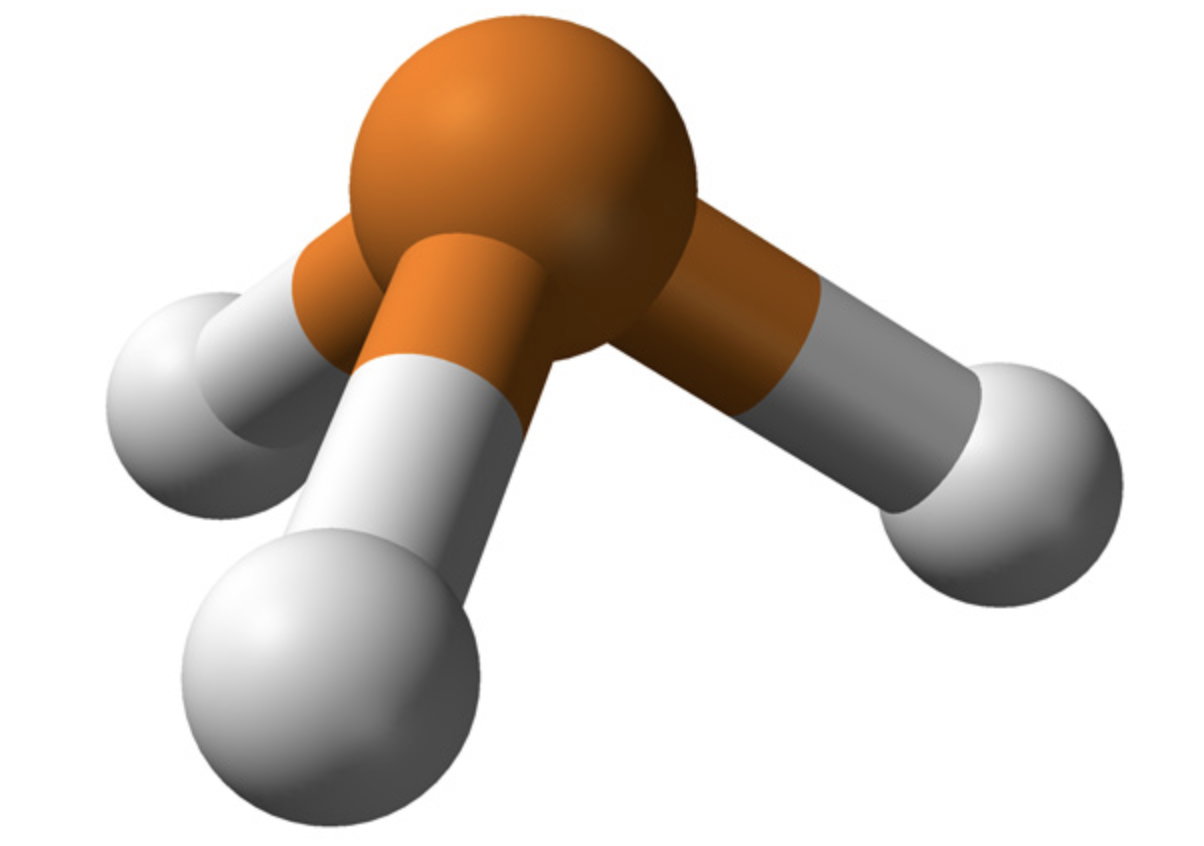
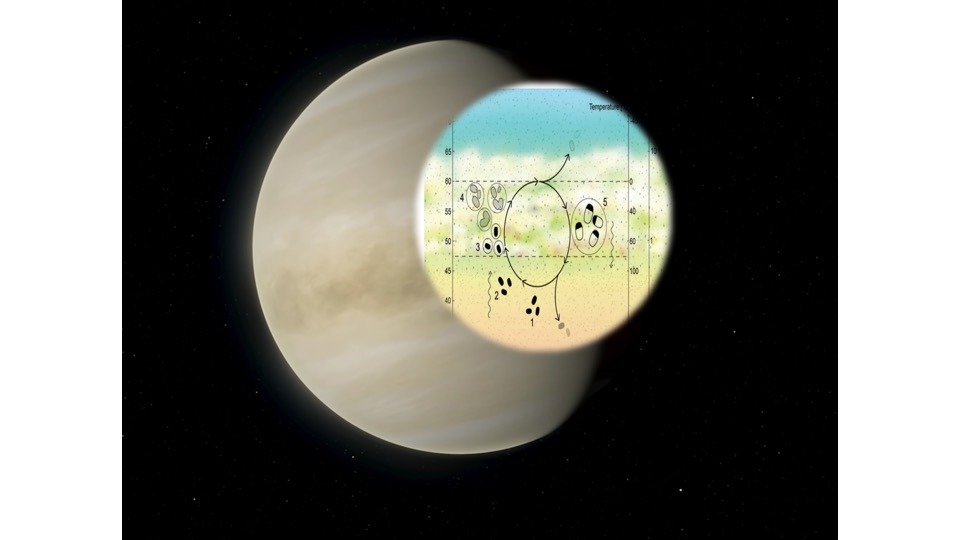
Given the amounts of phosphine detected so far, strongly suggests the phosphine is created by living organisms,
rather than by some non-biological reaction. The detection of phosphine in the Venus atmosphere provides evidence for a recent hypothesis on how microbes can actually exist in Venus cloud decks - Even with tiny amounts of water, where it is much hotter than earth, with acidity that is off the scales that we use to measure pH here, on our planet.(Click HERE for that paper)
This theory proposes that the postulated Venusian microbes live in the cloud layers of Venus.
It suggests that the microbes evolved to survive periodic desiccation (dryness), as spores. This theory also suggests that, amount of UV light that the Venusian atmosphere absorbs teases the idea that a biosphere of photosynthetic organisms might use UV light for energy! The hypothesis suggests that such microbes would be small enough to fit into the droplets of Venus, sulfuric acid cloud vapors. And also, that the microbial spores are light enough to linger within these Venusian cloud droplets.There is evidence that Venus once harbored water on its surface.
When that water evaporated, due to changes in Venus atmosphere, it is possible that the microbial life that had been on the Venus surface, migrated to the clouds.
More checking and work must be done by all the researchers involved, before they can confirm that the amounts of phosphine detected are not due to something, other than potential life in the Venus clouds.
Ultimately - Dr. Greaves says, we must visit Venus again
to collect samples from the atmosphere.
Won't that be fun?
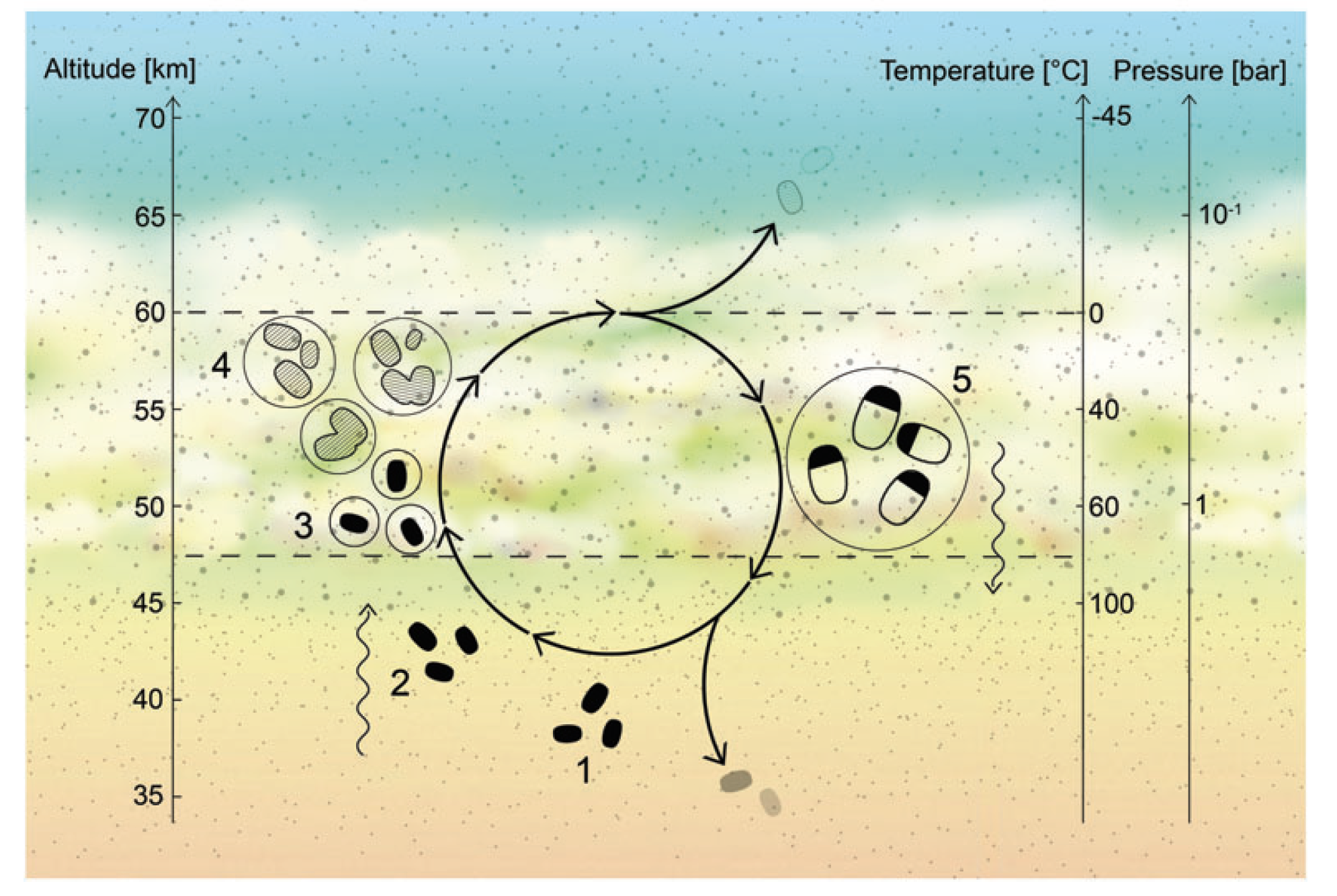


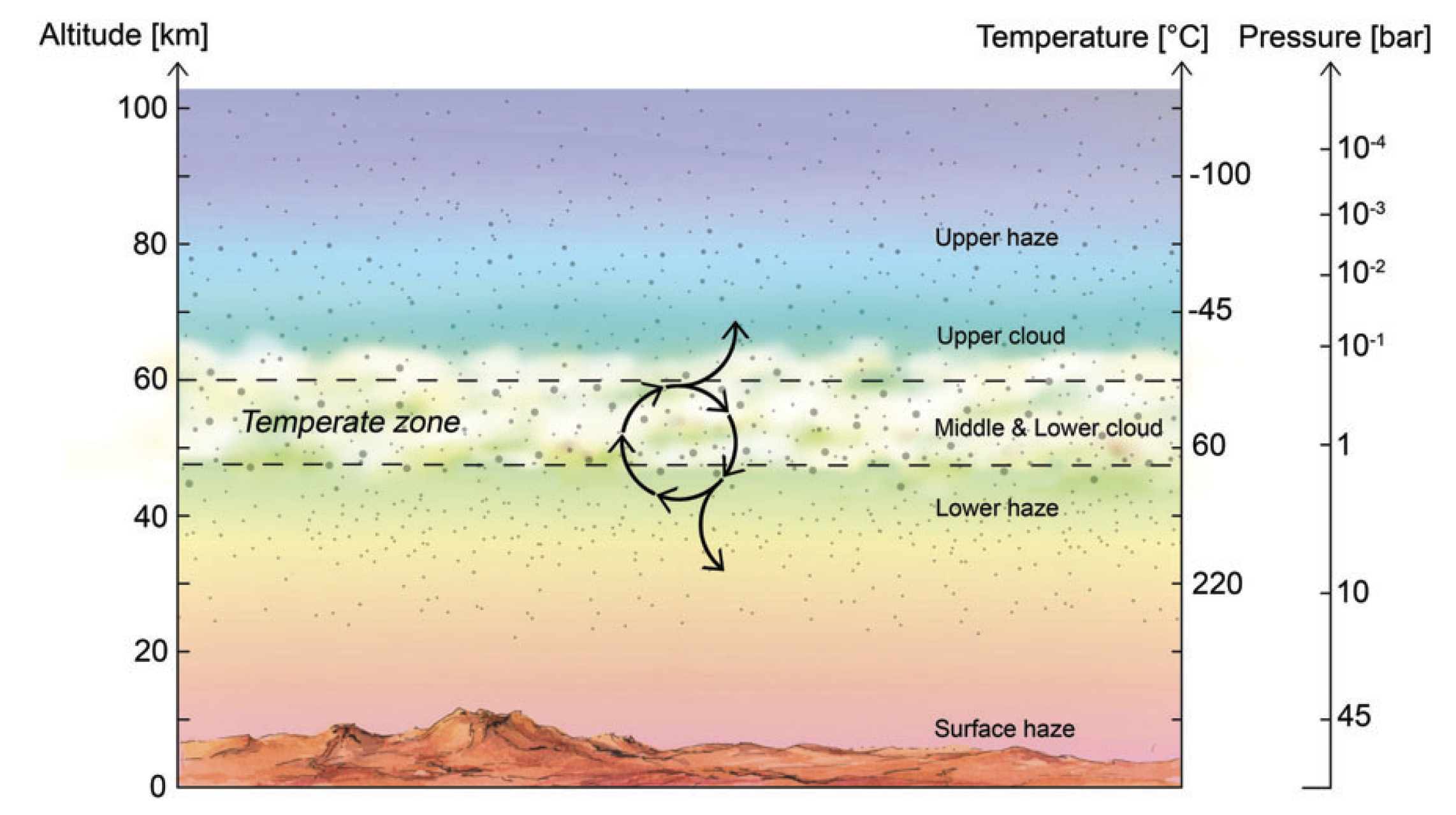




What are the lessons from these microbes that, like veiled dancers, swirl within Venus's acidic clouds?
These microbes may have originated from the planet's surface, and then, were forced to leave and find a new way of life, a new "normal" in the clouds.
With our world in upheavals from the pandemic,
the hurricanes, the wildfires and unrest, it seems that we are being messaged from the clouds of our neighboring planet.We are being shown that all life is resilient and resourceful. That means you and that means me. Loss of home, loss of family, loss of job - these are catastrophic events to be sure!
But when the environment we have grown used to, has evaporated under our feet,
let's take a page out of the Venus microbe lesson plan. Let us find our way to the clouds, and discover the potential within us to survive in new ways, in new places.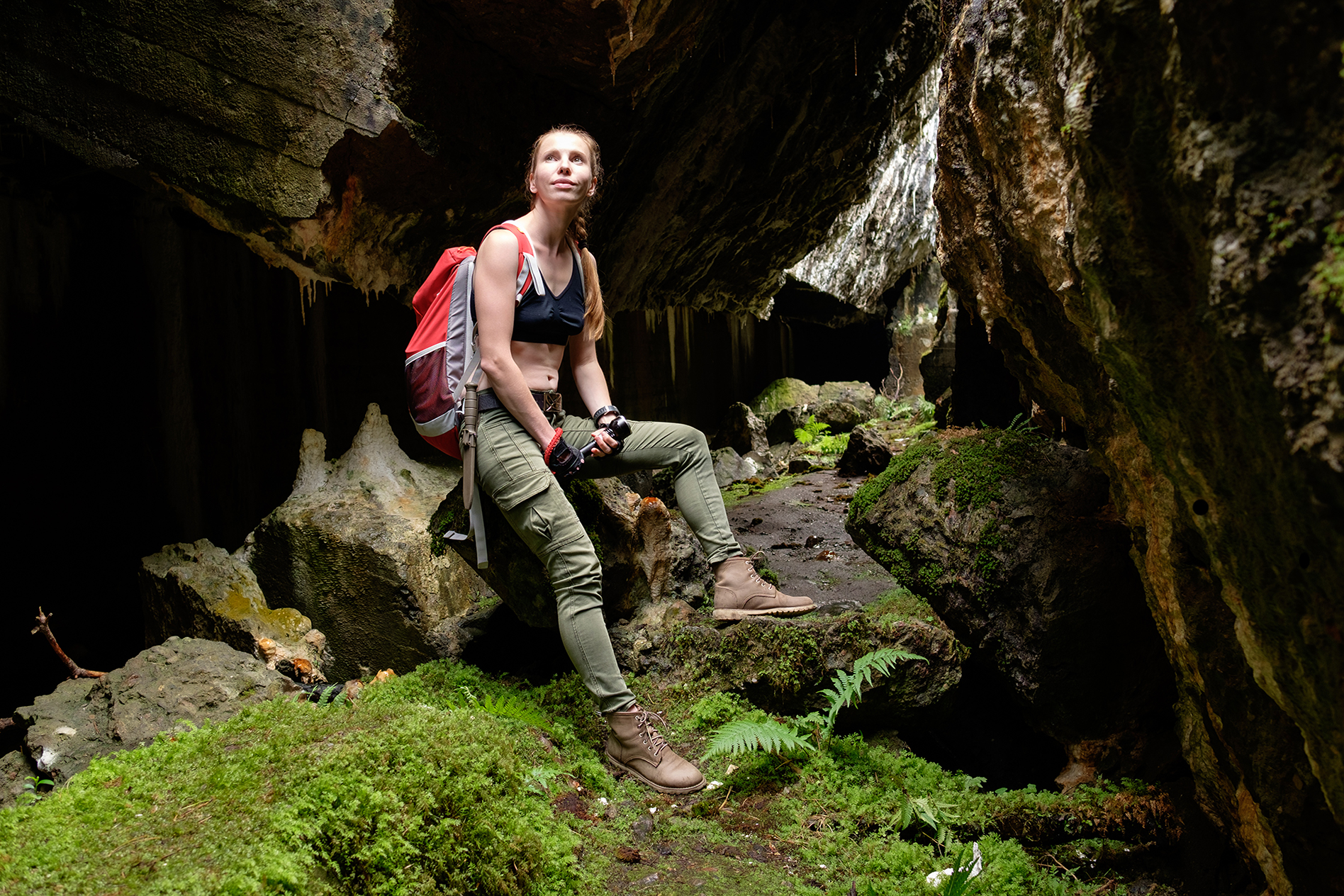
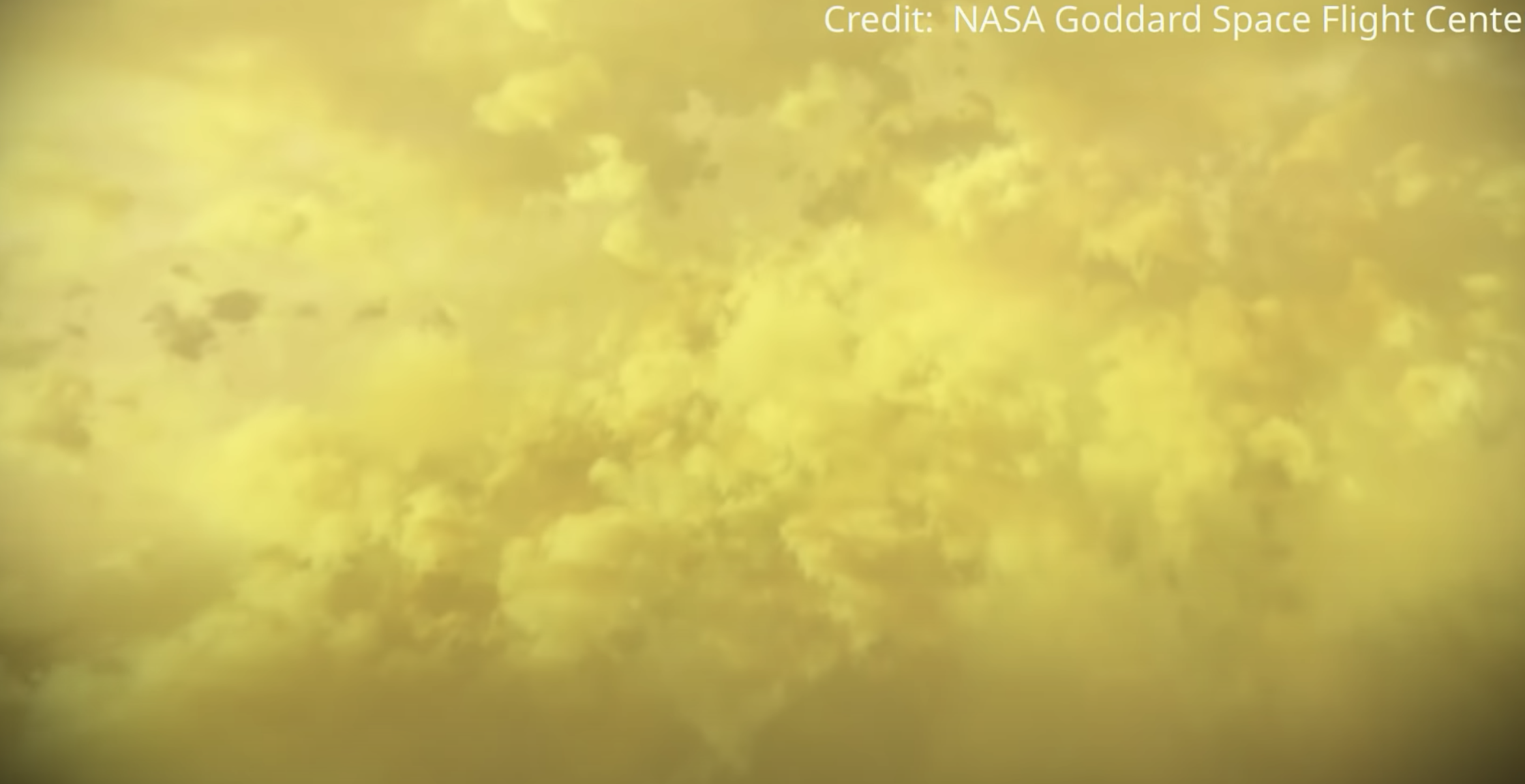

It might be acidic, and as smelly as garlic!

But, what an intriguing, novel journey it can be!
With Joy and Hope,
JeM YinJoy, Ph.D.









